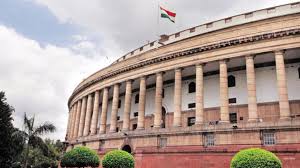Lok Sabha passes Farm Reform bills: Facts, Concerns and Benefits
On September 17, 2020, Lok Sabha passed two farm bills amidst the protests from the opposition. The bills were on agriculture market reforms and contract farming provisions. The bill to amend the essential commodities Act, yet another farm bill was passed on September 15, 2020.
Highlights
The Government of India had earlier introduced three ordinances. They were as follows
- Farmers Produce Trade and Commerce (Promotion and Facilitation) ordinance,
- Farmers (Empowerment and protection) Agreement on Price Assurance and Farm Services ordinance
- Essential Commodities (amendment) ordinance.
These ordinances on now being replaced by the bills. The introduction of bills in the Parliament brought in huge protests in the states of Punjab and Haryana. Following these protests, the minister of food processing industries Shrimati Harsimrat Kaur Badal resigned from her post.
What is the bill on agricultural market?
Farmers Produce Trade and Commerce (Promotion and Facilitation) bill, 2020 is the bill on agriculture market
Benefits
- It will create a platform where the traders and farmers can buy and sell their farm produce outside their registered Mandi operating under agricultural produce Market Committee (APMC).
- It will promote interstate and intrastate trading of farmer produce.
- The bill will help to reduce transportation cost and help farmers get better prices.
- It’ll also facilitate a framework for electronic trading.
Concerns
- According to the opposition, the states will lose their revenue as they will not be able to collect Mandi fees if the farmers sell their produce out of the registered APMC mandis
- This will eventually end the minimum support price system.
What is the bill on contract farming?
Farmers (Empowerment and protection) Agreement on Price Assurance and Farm Services bill, 2020, is the bill on contract farming.
Benefits
- The bill will help farmers enter into contract with agricultural business firms, wholesalers, foot processors and large scale retailers.
- The small and marginal farmers in India account to 86 percentage of total farmers in the country. They are farmers with land less than 5 hectare. The bill will help these farmers gain by aggregation and contracts.
- It will help the farmers access modern technologies and get better inputs.
- The bill will reduce cost of marketing and will boost farmers income
- it will engage farmers in direct marketing by eliminating the intermediaries.
- The bill will also help in bringing up an effective dispute resolution mechanism with redressal timelines.
Concerns
- According to the position, the farmers currently engaged in contract farming are those who are weaker in terms of ability to negotiate what they need.
- The wholesalers, exporters, processes will have edge in disputes.
Month: Current Affairs - September, 2020


